How to Remove Grey box on top-right corner of Desktop?
You may see a grey box (or another colored object like a green circle etc.) on your display if your display driver is corrupt. Moreover, a wrong configuration of the system’s graphics or conflicting applications may also cause the error under discussion.
The user starts seeing a shape on his display after logging-into his system that overlays on all the windows/applications. Many users encounter the box on the top right of the screen but for a small contingent, the box appeared on other areas of the screen as well. For some of the users, the mouse overlays the box and could be clicked but for others, they cannot click the box.
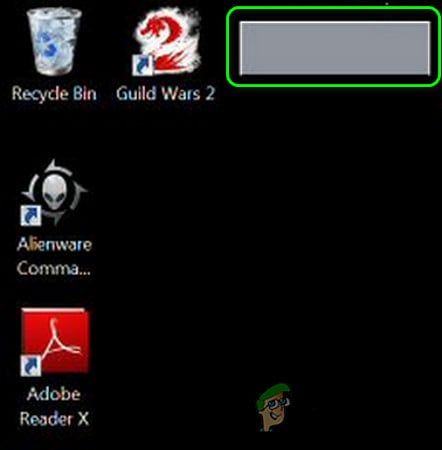
Before moving on with the solutions to get rid of the overlay box, connect your monitor to another system to check if the monitor is not faulty. If that is not possible, then check if the grey box even appears in the system’s BIOS, if so, then get your monitor checked for a hardware issue.
Make sure that the magnifier (or any of its zoom settings) is not causing the issue. If you are using a TV as the display unit, then check muting/unmuting the TV resolves the issue. Moreover, make sure Windows and drivers (especially, display driver) of your PC are updated to the latest release.
Solution 1: Change Monitor Settings
You may see the grey box on the display if your monitor settings are misconfigured. In this scenario, changing the monitor settings may solve the problem.
- Power off your monitor and wait for 1 minute.
- Then reboot your monitor and check if the grey box issue is resolved.
- If not, open your monitor’s Menu and steer to the Picture Boost tab.
- Now disable the option of Bright Frame and apply your changes.

Disable Bright Frame in the Monitor’s Settings - Then check if the grey box has disappeared.
- If not, open the monitor’s Menu and steer to the System Setup tab.
- Now select All Reset (or Factory Reset) and check if it resolves the box issue.
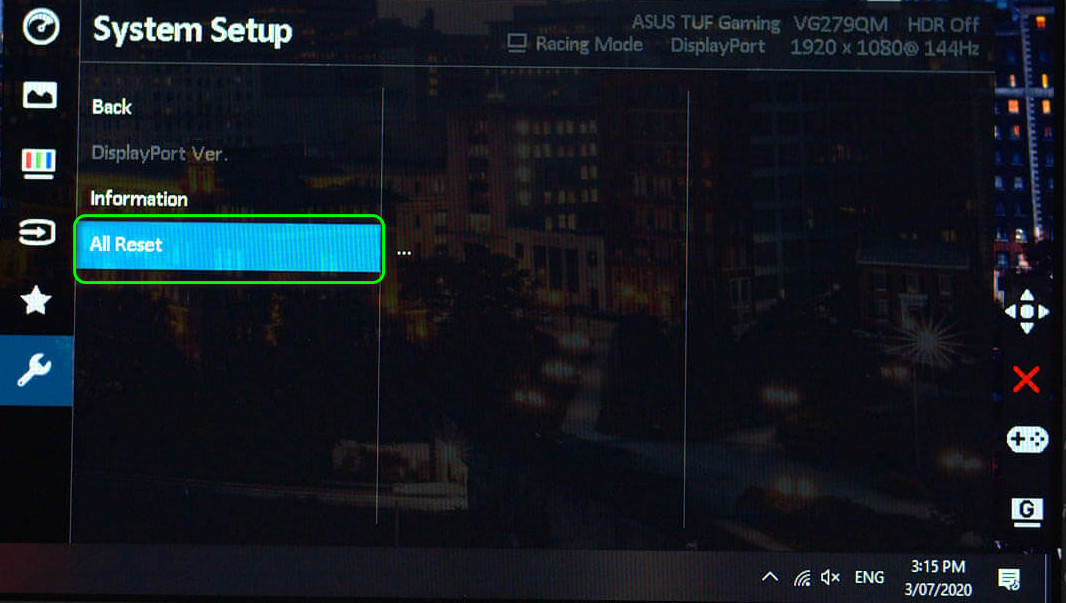
Reset All the Monitor’s Settings
If the issue is still there, then try to connect a 2nd monitor to your system and check if that resolves the issue on the problematic monitor. If you are encountering the issue on a laptop, then check if opening the laptop lid (if connected to another display) solves the problem.
Solution 2: Disable the Windows Tips
The grey box could be a result of a stuck Windows tips or tricks ‘leftovers’. In this context, disabling the Windows Tips in the Windows Settings may solve the problem.
- Press the Windows key and open Settings.
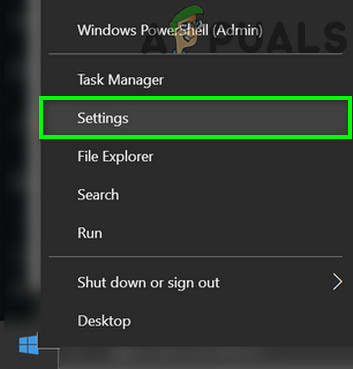
Open Windows Settings - Now open System and steer to the Notifications & Actions tab.
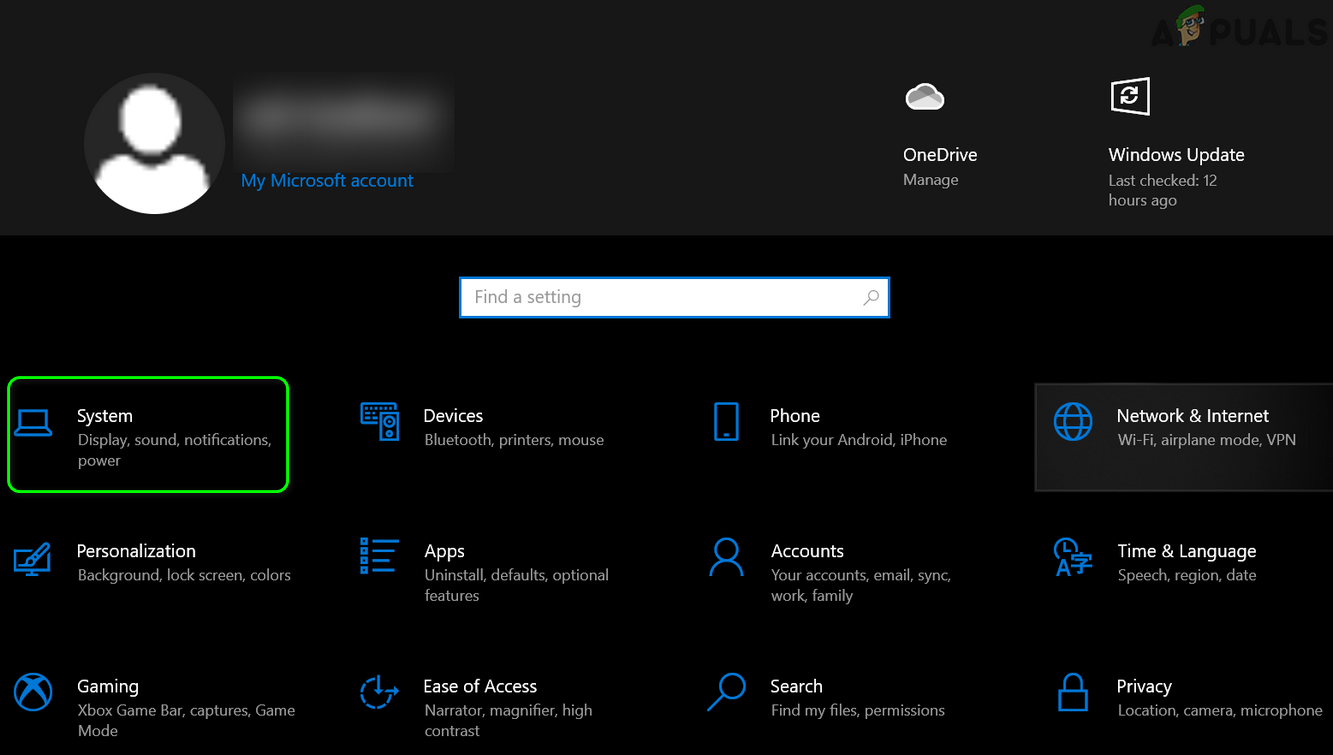
Open System in Windows Settings - Then uncheck the option of ‘Get Tips, Tricks, and Suggestions as You Use Windows’.
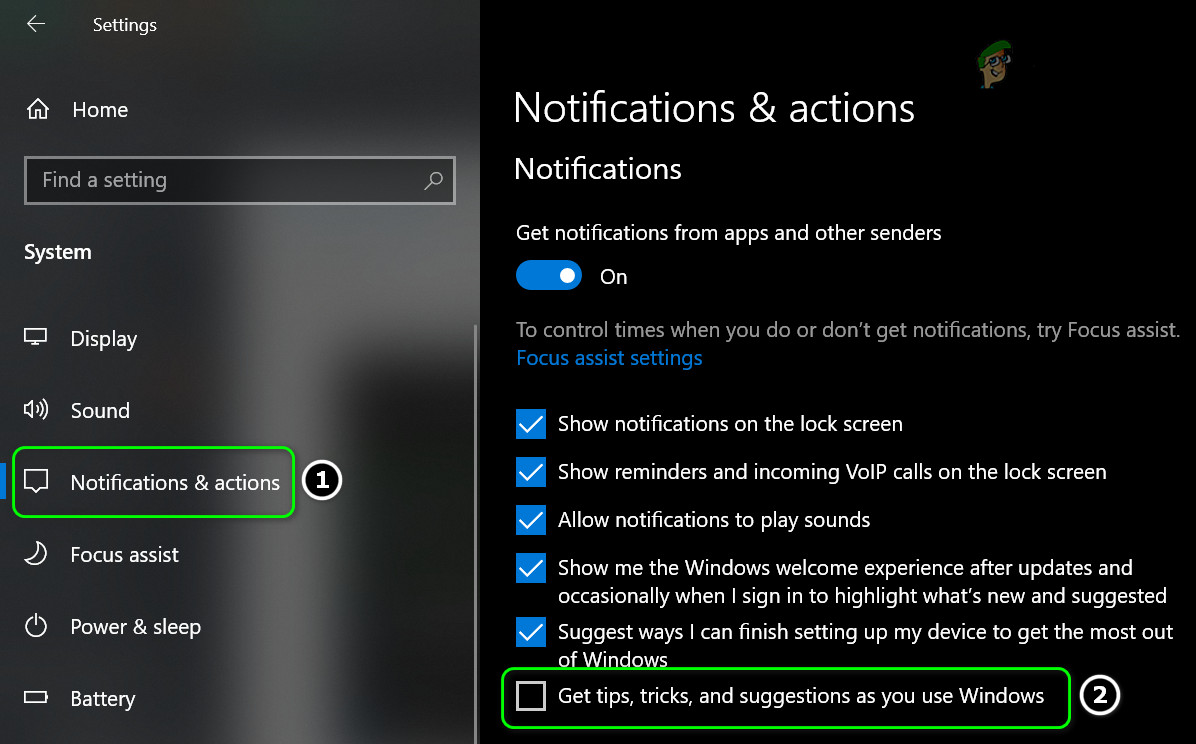
Uncheck ‘Get Tips, Tricks, and Suggestions as You Use Windows’ - Now reboot your PC and check if the grey box issue is resolved.
Solution 3: Change the Graphics Settings
The box issue could be triggered by different graphics settings. For example, the Shadow play or Overlay features may cause your system to show a box on the display. In this context, editing the undermentioned settings may solve the problem.
Disable Nvidia In-Game Overlay
- Right-click on the Nvidia icon in the system’s tray (you may have to expand the hidden icons) and select GeForce Experience.
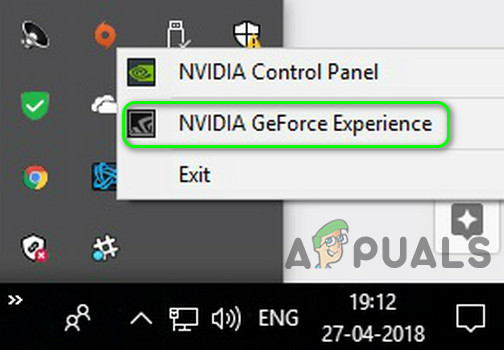
Open Nvidia GeForce Experience - Now open Settings and toggle off the switch of In-Game Overlay (you may try the shortcut keys of Alt + Z).
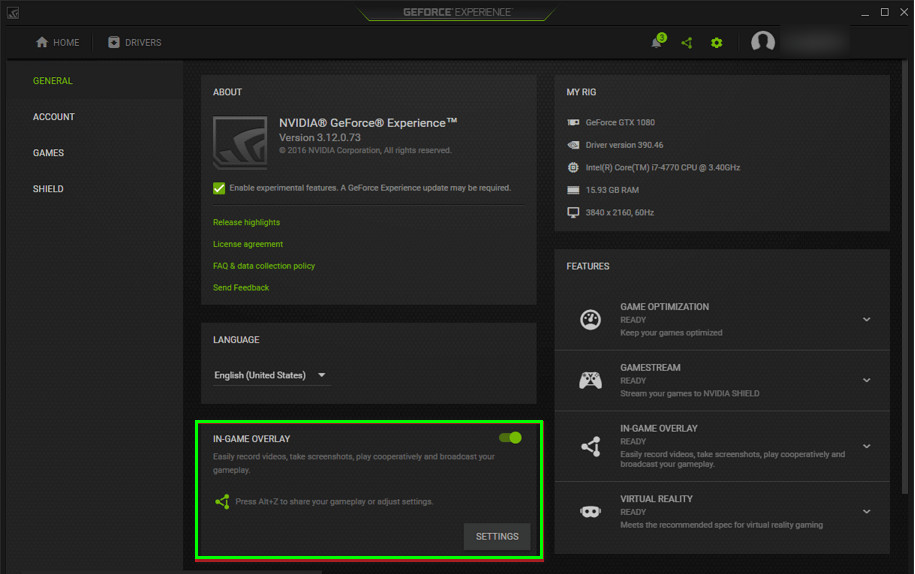
Disable In-Game Overlay - Then close the GeForce Window and check if the display is clear of the grey box.
Disable Relive Recording Indicator
- Open Radeon Settings and open Relive.
- Now select Scene and open Indicator Location.
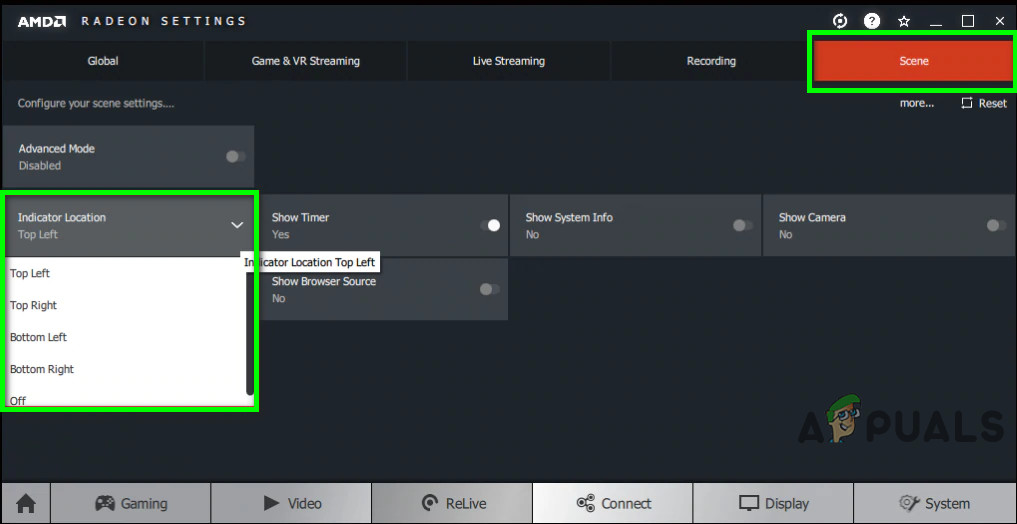
Disable Indicator Location in Relive Settings - Then select Off in the dropdown and check if the grey box has disappeared.
- If not, then open Relive in Radeon Settings (step 1) and check if disabling the Record Desktop resolves the grey box issue.
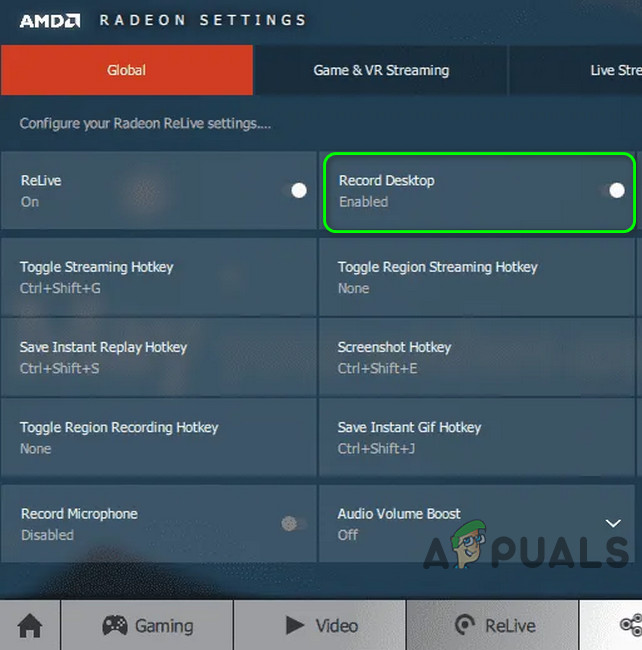
Disable Record Desktop in Relive Settings
Disable Radeon Overlay
- Press the Alt + R keys to launch the Radeon Settings and then uncheck the option of Show Overlay.
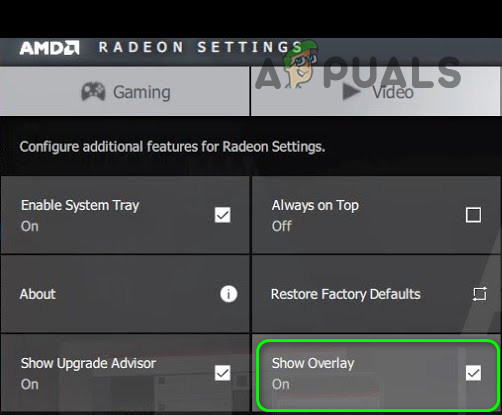
Disable Show Overlay in Relive Settings - Then check if the grey box issue is resolved.
If so then you may have to disable the hotkey combination, to do so, press the Alt + R keys and select the Toggle Radeon Overlay Hotkey box. Then hit the delete key to remove the hotkey (or add a new key combination that you do not use) and the setting will be changed to None.

If you are using Radeon Metrics, then hit CTRL + SHIFT + O keys to disable it to check if it resolves the issue (if the Metrics start to show-up, then hit the said mentioned keys again to disable it). You can check if any of the other hotkeys in the Global, Gaming, and Performance Monitoring tabs are causing the issue.
If the issue persists, then check if disabling power management in the graphics control panel (e.g., Intel HD Graphics) resolves the box issue.
Solution 4: Clean Boot Your System
Your display may show the grey box due to a poorly written code of an application. In this case, closing/disabling/uninstalling the problematic application may solve the problem.
- Boot your system in the safe boot and check if the box is shown.
- If the issue does not occur in the safe mode, then check if the issue does not appear in the clean boot (You can also try Process Explorer to find out the application causing the issue).
- If so, then enable processes/applications one by one till you find the problematic one.
- Now close, disable, or uninstall the application and check if the issue is resolved.
Following are the applications reported by users to create the issue. You may have to close the problematic application (through the Task Manager) or disable it at the system’s start-up, otherwise, you may have to uninstall the application.
- Premier Color
- Dell Backup & Restore Manager (DBRM Toaster)
- Greenshot
- AVG Secure Search
- AVG SafeGuard Toolbar (vprot.exe)
- AVG Zen
- Norton Antivirus
- Origin
- Dell System Detect
- Google File Stream
- Clean My PC by MacPaw
- Comodo Message Centre
- Catalyst Control Center
- Razer Synapse
- Visual Studio
- Microsoft Excel (Quick Analysis button)
- Tobii Eye Tracker
Solution 5: Disable Touch Screen of Your System
Your system may show the grey box on the display if the touch screen is hindering the display modules. In this case, disabling the touch screen may solve the problem.
- Launch the Quick Access menu by simultaneously hitting the Windows + X keys. Then select the Device Manager.
- Now expand the option of Human Interface Device and then right-click on your touch device.
- Then select Disable and check if the display issue is resolved.
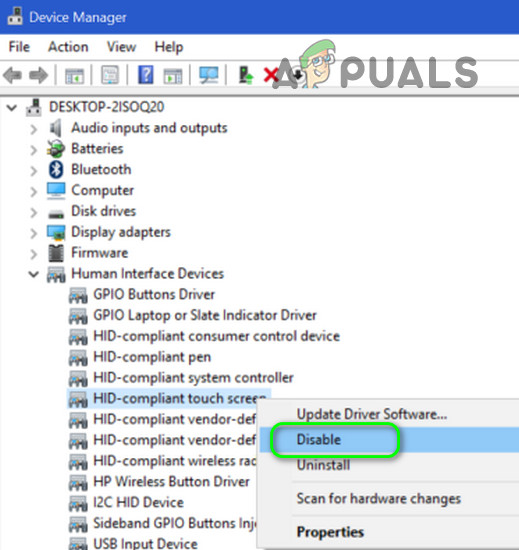
Disable Touch Screen in the Device Manager
If the issue persists, then check if you can swipe away the box with two fingers (after enabling the touch screen).
Solution 6: Reinstall the Graphics Driver
You may see the grey box on your display if the graphics driver of your system is corrupt. In this scenario, reinstalling the (default/latest) graphics driver may solve the problem.
- Simultaneously press Windows + X and in the Power User menu, choose the Device Manager.
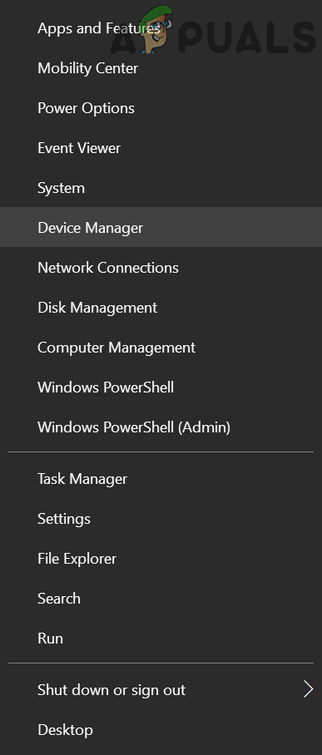
Open Device Manager of Your System - Now expand Display Adapters and right-click on your graphics card.
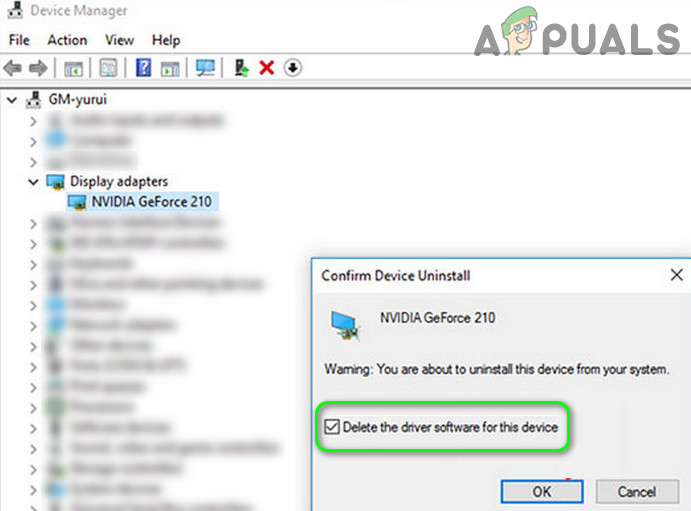
Uninstall Graphics Driver and Delete its Driver Software - Then select Uninstall and checkmark the option of Delete the Driver Software for This Device.
- Now click on Uninstall and then wait for the completion of uninstallation.
- Then right-click on the Windows button and in the Power User menu, choose Apps & Features.
- Now expand any application related to your graphics card e.g., Nvidia GeForce Experience, and then click on Uninstall.
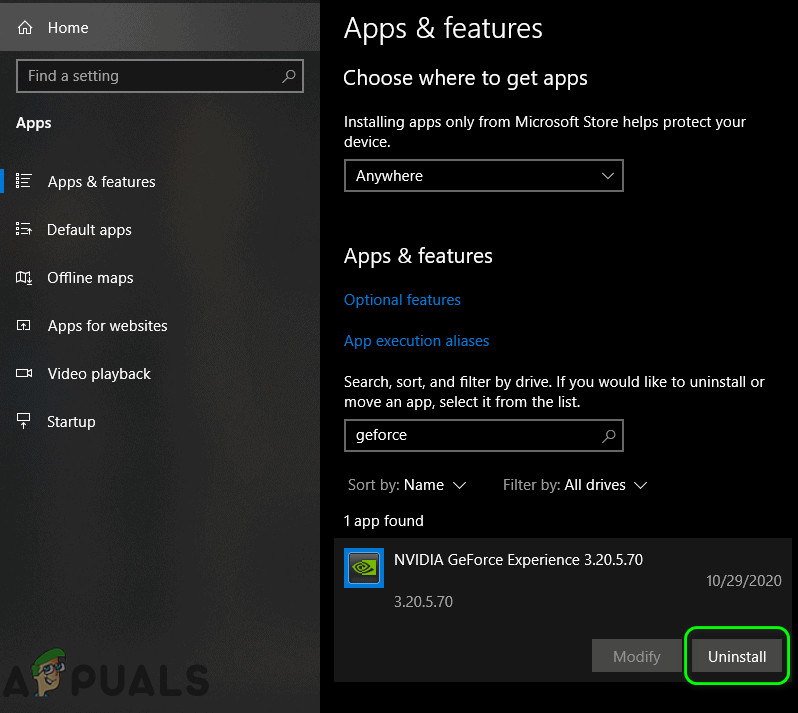
Uninstall Nvidia GeForce Experience - Then confirm to uninstall the application and let the uninstallation complete.
- Now reboot your PC and check if the display issue is resolved (Windows may install its default drivers).
- If not, then download and install the latest drivers by your graphics card manufacturer and check if it resolves the grey box issue.
Workarounds
If any of the solutions did not solve your issue, then the undermentioned workarounds (reported by users to solve the issue temporarily) may get the job done. You may try these workarounds one by one to check if any of them removes the grey box on your screen:
- Press the Windows + L keys to lock the system. Then login to the system.
- Press the Ctrl + Alt + Delete keys and then in the security options window, choose Cancel.
- Restart your system. If you do not want to restart, then you may Logout and then log back into the system.
- Power off your system and disconnect the power cable from the power source (if you are encountering the issue on a laptop, then remove the battery of the laptop). Then press & hold the power button (to discharge the static electricity) for 60 seconds. Now wait for 5 minutes and then power on the system to check if the grey box issue is resolved.
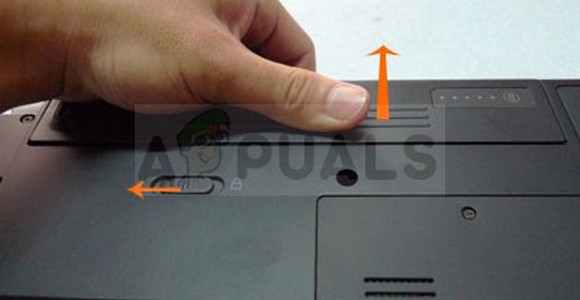
Remove the Laptop Battery - Change the screen resolution and when asked to confirm, click Cancel.
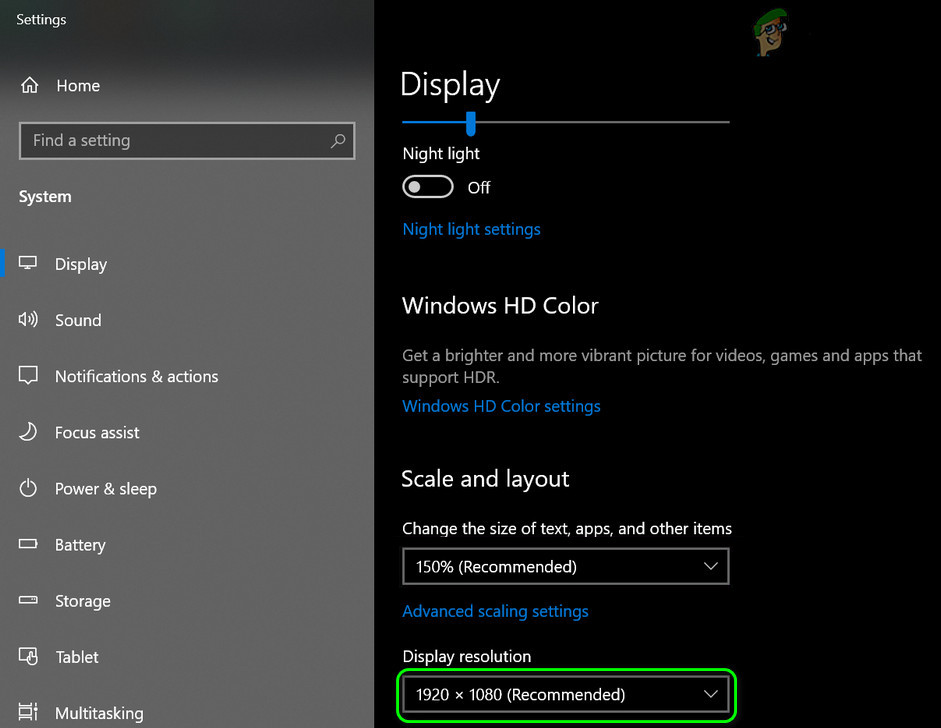
Change the Screen Resolution - Rotate the Screen by pressing CTRL + ALT + any of the arrow keys (if supported by the graphics card of your system) and check if the issue is resolved (then revert to the normal screen rotation).
- Press the Ctrl + Shift + Windows + B keys to restart your graphics card and check if the grey box has disappeared.
- Check if changing the Color (from True Color 32bit to High Color 16bit) in the Display settings of your system resolves the problem (do not forget to revert to the previous color scheme).
- Change the Refresh Rate in the Display Settings of your system and then revert to the previous one to check if that resolves the issue.
- Open Personalization in Settings and navigate to the Themes tab. Then select a different theme.
Use the Task Manager of Your System
- Launch the Power User menu by simultaneously pressing Windows + X keys and choose Task Manager.
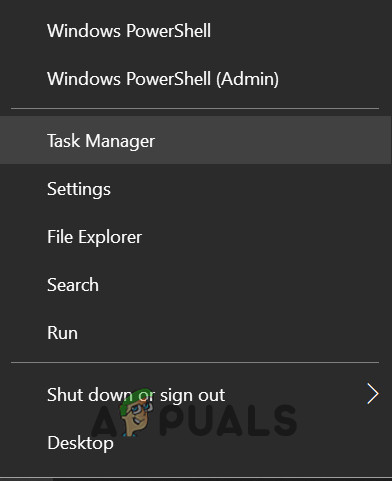
Open the Task Manager from the Quick Access Menu - Now end the process that you suspect was creating the issue (e.g., Dell Update.exe) and check if the issue is resolved.
- If not, launch the Task Manager (step 1) and right-click on the Windows Explorer process.
- Now choose Restart and then check if the grey box is removed.
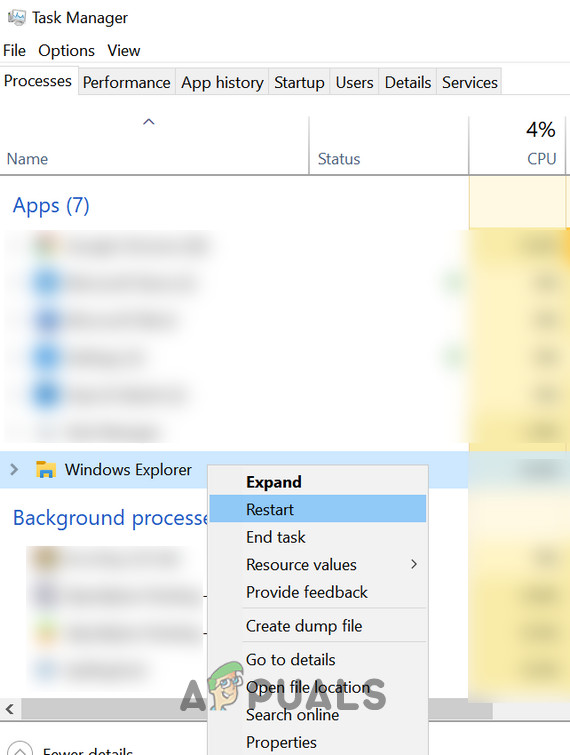
Restart the Windows Explorer - If not, then end the task of Desktop Window Manager (dwm.exe) and check if that resolves the issue. If asked to, checkmark the option of Abandon Unsaved Data and Shut Down. Then click on the Shut Down button and check if the grey box issue is resolved. If so, but the issue reappears, then you may have to create a batch file to kill the DWM task (but without shutting down the system) at regular intervals.
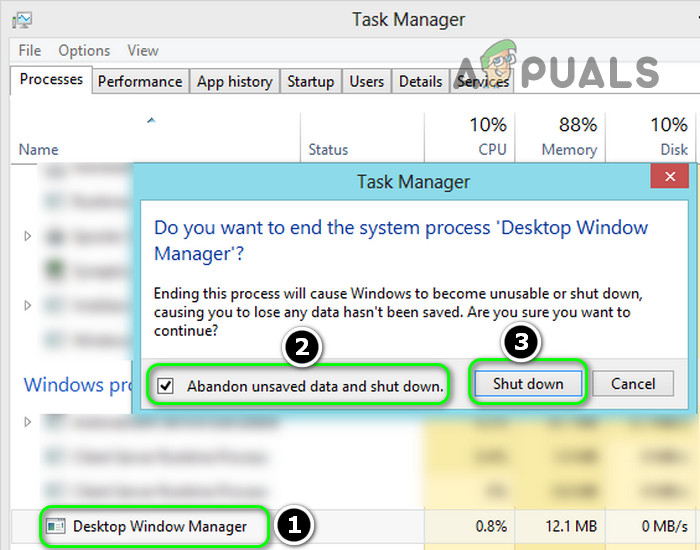
Select ‘Abandon Unsaved Data and Shut Down’ and Click Shut Down to End the Desktop Window Manager
If the issue is still there, then check if any of the system’s tasks in the Task Scheduler is causing the issue. Users reported that the SamoyedAgent.exe task (by Samsung’s EasySupportCenter app) caused the issue. If the issue persists, then check if using a 3rd party utility like Actual Tools solves the issue. If the problem continues, then you may have to reset the PC to the factory defaults. If that did not do the trick, then you may have to get your display unit checked for a hardware issue.





